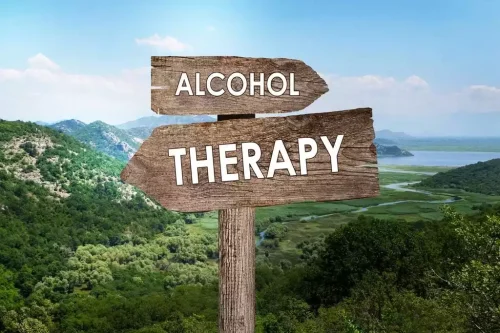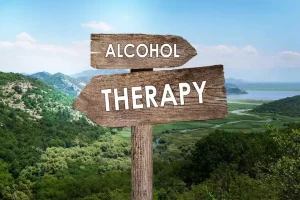Dependence vs Addiction: How to Tell the Difference

It can occur even with prescribed medications when used as directed and doesn’t necessarily signify a loss of control. Support is available for anyone facing challenges related to addiction or dependence. Identifying signs and accessing resources can empower individuals to move forward toward recovery. Recognizing the signs and knowing where to find assistance can make a difference in one’s journey. Against the backdrop of the presidential campaign, the prevention of substance abuse has recently become a politically charged issue.

Behavioral and Psychological Aspects of Addiction
- Substance addiction refers to a complex mental health condition where an individual struggles to stop or control their behavior towards a particular substance.
- If you’re concerned about your drug use and whether it’s crossing the line towards addiction, an understanding of these terms can help.
- The medical community has typically thought of addiction as abuse of a substance that continues even when there are detrimental consequences, such as losing a job or developing physical issues like kidney damage or ulcers.
- This is where dependency can turn into full-blown addiction—when substance abuse becomes the all-encompassing main priority.
Addiction is a complex condition, often characterized by compulsive behaviors related to the use of substances or engaging in certain activities. Understanding addiction requires examining its unique features and the various factors that contribute to its Halfway house development. It’s important to note that mental dependence arises from emotional reliance on substances, often triggered by specific situations, emotions, or environments linked to substance use. Mental disorders can also contribute to the development of both dependence and addiction.
- In many cases, a gradual tapering approach is used to help the body adjust without severe discomfort.
- You can develop dependence without being addicted, but addiction often includes dependence.
- Many drugs cause dependence but not addiction, for example, paroxetine 10 and clonidine 11.
- Certain drugs are known to be more physically addictive than others, making it more likely that a person will develop a physical dependence (i.e. heroin, cocaine, or meth vs marijuana or alcohol).
Mental Health and Loneliness
Recovery from drug dependence and addiction is possible, and many individuals go on to lead fulfilling, substance-free lives after treatment. With dedication, self-care, and the right support, a healthier and happier life is achievable. Physical dependence happens when the body adapts to the presence of a drug, to the point where its absence triggers withdrawal symptoms. These symptoms can vary in intensity, from mild ones to severe ones such as seizures or nausea. Over time, tolerance may also develop, meaning the person needs more of the substance to achieve the same effects. These warning signs serve as crucial indicators that the situation has escalated beyond personal management and necessitates professional intervention.
The Behavioral and Emotional Aspects of Addiction
Detoxification treatment may need to be administered to those with substance dependence due to the dangerous nature of some withdrawal symptoms. Research suggests that no treatment method is superior, but that social support is very important and that organizations such as AA and NA have better than average success rates in reducing relapse. As the medical and scientific discussion on these terms has progressed in recent years, both are now considered as part of a larger grouping; that of substance use disorder. Addiction and dependence are words both https://ecosoberhouse.com/article/what-is-drug-addiction/ used to describe an unhealthy and problematic pattern of drug or alcohol use.

When someone uses the term “dependence,” they’re often referring to someone becoming physically dependent on a drug. This means they’ll experience withdrawal symptoms if they decrease the dose or halt use altogether, or they’re unable to experience the effects of the drug at the dose they’ve become used to, known as tolerance. With that said, it’s important to note that you can be dependent on a drug without being addicted.
Behavioral Therapies for Addiction

Clinicians, however, pointed out that the word ‘dependence’ was already in use to mean something completely different and normal. After much discussion and debate, the word ‘dependence’ was chosen by the margin of a single vote. This international committee met over several years in cities such as Washington, Copenhagen and New York, and their work was published in 1987 as DSM-III-R (revised). The committee made most decisions unanimously because there was general agreement from the experts as to how the syndrome should be defined (the names of the members are contained in the preface to DSM-III-R). There was a significant disagreement, however, among members of the committee with respect to the label that should be used. They argued in favor of the more neutral term ‘dependence’, as the discussions were influenced heavily by work on the alcohol dependence syndrome by Professor Griffith Edwards and colleagues 1.

Most patients require long-term treatment, which can include medications, therapy, and residential programs. Recovery from substance use dependence involves a holistic approach that goes beyond abstaining from substance use. It encompasses enhancing overall quality of life, fostering emotional and physical well-being, building healthy relationships, and engaging in addiction vs dependence fulfilling activities 9. By prioritizing long-term follow-up and implementing strategies to manage relapse risks, individuals can navigate the complexities of recovery with resilience and determination. According to the National Institute on Drug Abuse, treatment for drug addiction is not a one-time cure but a manageable condition.
Ensuring Substance Use Prevention For Teens
- Addictive disorders are highly treatable, and treatment at an inpatient or outpatient rehab can greatly increase the likelihood of long-term sobriety.
- In the realm of substance use dependence, effective communication between healthcare providers and patients plays a vital role in ensuring successful treatment outcomes.
- On the flip side, we have psychological addiction, the master puppeteer of behavior and cognition.
The DSM-5 provides specific guidelines for clinicians to assess the severity of a substance use disorder (SUD) based on the number of symptoms a patient exhibits. Addiction often begins with a voluntary decision to use drugs or engage in certain behaviors. No one starts with the intention of becoming addicted, but repeated use over time can drastically diminish control, leading to compulsive use. For alcohol addiction and opioid addiction, supervised detox may be necessary depending on the severity of physical dependence. Physical dependence can be life-threatening if not properly managed, particularly with substances like alcohol or benzodiazepines.
